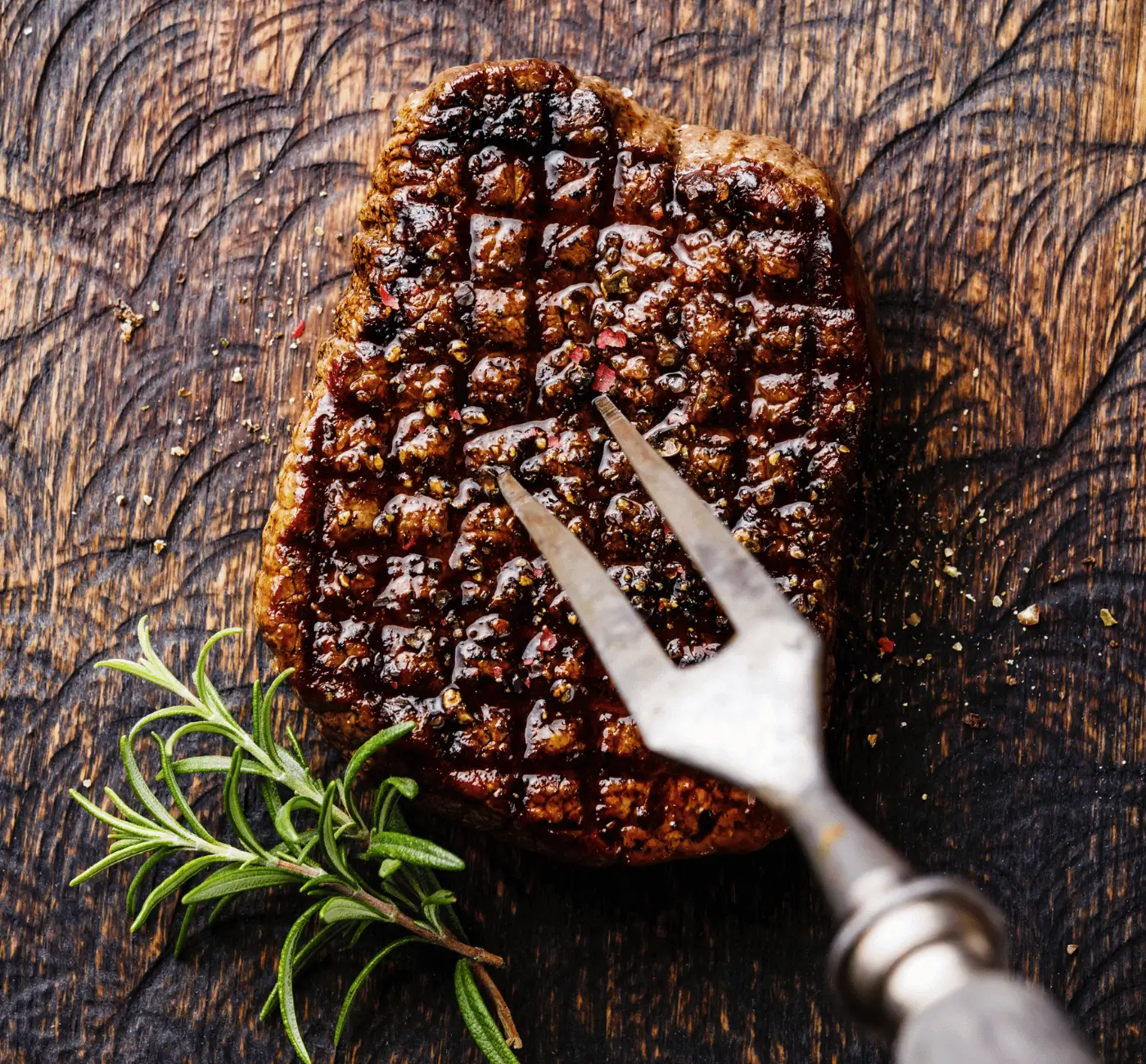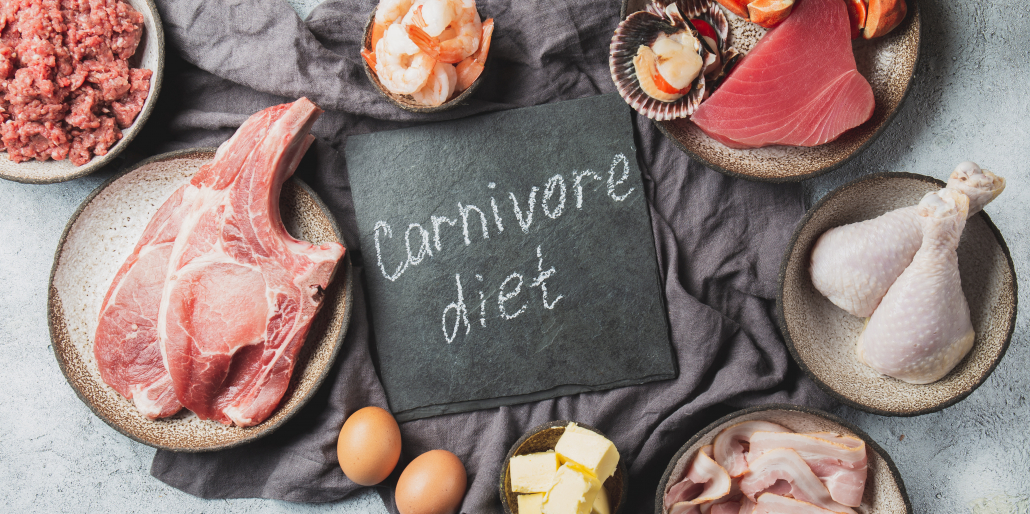
Getting enough vitamin C on a carnivore diet is one of the most persistent concerns of people interested in this all-meat way of life.
However, this concern is based on a mainstream dietary fallacy that meat contains no vitamin C. In fact, when eating a carnivore diet of at least 1000 grams (2.2lbs) of fresh muscle meat alone, you will exceed the amount of vitamin C you need to prevent scurvy (vitamin c deficiency).
You can also increase your vitamin C intake on a carnivore diet with the addition of organ meats and seafood.
Let’s take a closer look at vitamin C on an all meat carnivore diet, why it’s not a serious concern for most people, and what you can do to avoid deficiencies.
Vitamin C is an essential dietary nutrient. This means our body can’t produce it on its own, and we need to get sufficient amounts from the food we eat. Vitamin C plays a role is vital for various bodily processes including:

If you’re new to carnivore you might be asking why people practice an all meat carnivore diet in the first place? Here’s a brief rundown of the carnivore diet benefits:
Though the carnivore diet is relatively new to the modern West, it’s likely the way our caveman ancestors ate for nearly 2 million years of evolution.
More recently, researchers from Harvard University, Dr. Belinda Lennerz and Dr. David Ludwig published a study looking at how a carnivore diet affected the health of 2,029 people [14]
The researchers concluded: Contrary to common expectations, adults consuming a carnivore diet experienced few adverse effects and instead reported health benefits and high satisfaction.
The results were overwhelmingly positive:
Though the data is self-reported, and therefore of relatively low quality, the marks a major step towards an institutional reckoning with the truth: Humans are evolved to thrive on meat, and plants are not the dietary superheroes we’ve been led to believe.
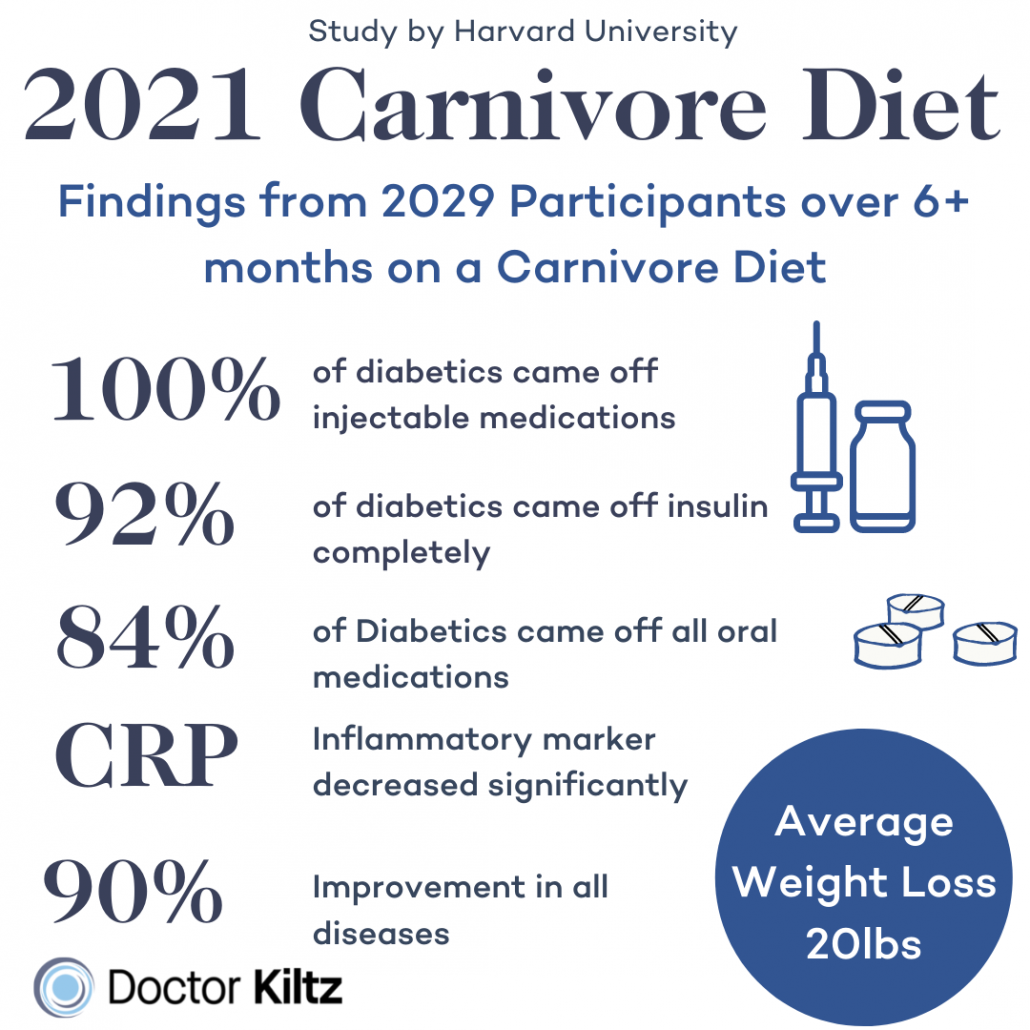
But what about the old belief showing that eating meat without plants will lead to vitamin c deficiency and scurvy?
As carnivore diet pioneer Dr. Sean Baker MD points out, there’s a major difference between British sailors eating a diet of carbs and dried meat who exhibited scurvy, and modern (and ancient) carnivore dieters eating fresh meat.
Baker reminds us that for over 100 years, we’ve scientifically verified that fresh meat not only prevents but cures scurvy. [15]

In the context of a diet high in carbs you only need 10 mg of vitamin C a day to prevent scurvy [16].
It is hypothesized that on a low to zero carb carnivore diet meal plan, it’s likely you need even less. This is because glucose and vitamin C have a near-identical molecular structure and share the same pathways when absorbed into cells. When glucose and vitamin C compete, glucose wins out [17].
Recent research has shown that study participants on a ketogenic diet had higher vitamin C levels than participants on a moderate-carb diet, even when getting only 4% of calories from carbohydrates, making it difficult to get substantial amounts of vitamin C from nonanimal sources [18].
According to the USDA, meat flesh contains no vitamin C. However, this is factually incorrect and based on the default practice of the UDSA to fill in vitamin C amounts in muscle meat as “assumed to be zero.” This is an egregious error, considering they test for nearly every other micronutrient [19].
Recent (2007) research published in Meat Science Journal confirms that fresh beef has approximately 1.6 mcg/g of vitamin C in grain-fed meat, and 2.56 mcg/g in grass-fed meat. [20] [1]
On a carnivore diet, if you’re eating 1000 grams of meat, or 2.2 lbs per day, you will be consuming 2.56 mg and 1.6 mg of vitamin C, respectively.

In addition to muscle meat, seafood, and organ meats provide far more supplemental vitamin C than you need to prevent scurvy. [19][20][21].
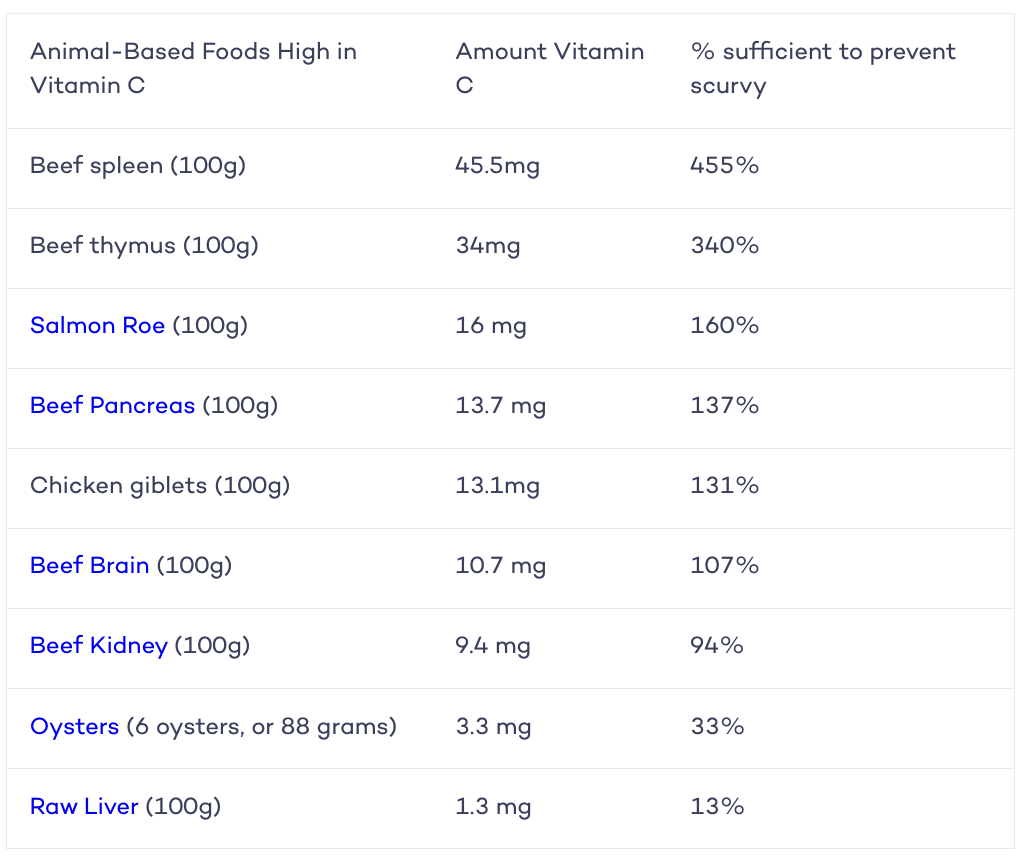
The recommended daily values of vitamin C are to provide antioxidant protection, or in their language: “based on the vitamin C intake to maintain near-maximal neutrophil concentration with minimal urinary excretion of ascorbate”.[11]
These RDA’s are not to prevent vitamin C deficiency. As we’ve stated above, to avoid deficiencies (scurvy) you only need 10 mg of vitamin C per day [21]
The Food and Nutrition Board RDA’s are:
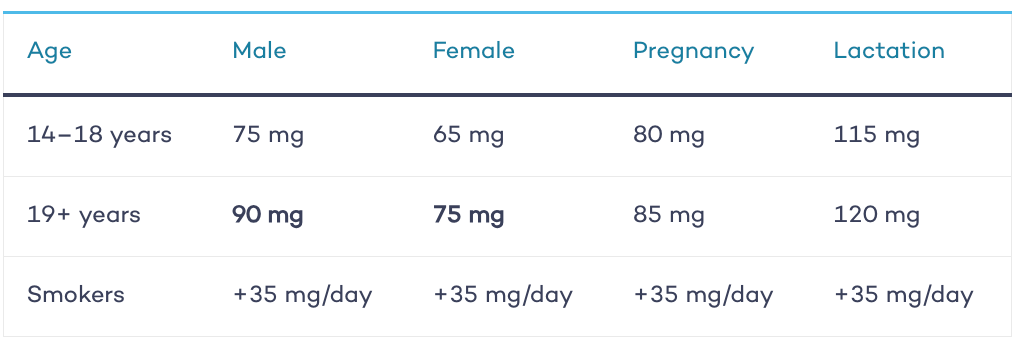
However, when vitamin C is reduced on a low-carb diet, your body can make up for its antioxidant properties by producing endogenous (made naturally in the body without reliance on dietary sources) antioxidants uric acid and glutathione [21].
These two compounds are considered “inborn” antioxidants that our bodies evolved the ability to produce specifically because we can’t produce vitamin C on our own. On a low-carb diet these powerful antioxidants are upregulated. While at the same time, the carnivore diet elimination of sugars and plant toxins that would otherwise cause oxidative stress and necessitate antioxidants.
The idea that a carnivore diet will produce a vitamin C deficiency only makes sense within the context of a high-carb standard American diet.
In the context of a low-carb ancestral diet that’s better aligned with our physiology, vitamin C deficiency is likely not an issue.
Scurvy is the term used for severe vitamin C deficiency. If you are eating an all-meat diet, or a generally unhealthy diet and fear you may be deficient in vitamin C, you can look for the following symptoms.
Vitamin C deficiency can begin with mild symptoms and progress to more severe symptoms if left untreated. However, most people treated for scurvy improve quickly and recover within 48 hours to 2 weeks.
Progressive tell-tale symptoms include:
Though vitamin C deficiency is rare, there are some groups of people and lifestyle choices that can increase your risk of vitamin C deficiency.
Numerous studies have found that drinking alcohol is associated with vitamin C deficiency [22][23][24].
Studies suggest that drinking alcohol can lead to enterocyte toxicity in the intestines resulting in malabsorption of vitamin C. Alcohol can also interfere with the transformation of vitamin C into active metabolites [25].
Menstruation requires blood cell production that relies on vitamin C. If you’re menstruating or have a heavy flow, you may be more susceptible to vitamin C deficiency.
In which case adding lemon or lime juice to a glass of water should protect you from deficiency.
Lemon juice offers 11.8 mg of vitamin C per 1 ounce.
If dairy is on your carnivore diet food list you are likely consuming carbs. If you’re eating a lot of yogurt and cheese, you may be cycling in and out of keto.
As we discussed above, the more carbs you eat, the harder it is for your body to absorb vitamin C, and the more you will need to consume.
Getting enough vitamin C on an all-meat diet is a common concern. However, fresh meat on its own will exceed the vitamin C needs of most people.
Adding in organ meats can boost your vitamin C intake even more.
When you reduce carbs your body absorbs more vitamin C, as vitamin C and carbohydrates compete for the same metabolic pathways.
Furthermore, when you reduce carbs your body upregulates the production of endogenous antioxidants that can accomplish many of the functions of vitamin C.
The idea that not eating plant foods will lead to scurvy makes sense in the context of a standard American diet high in carbs and low-nutrient processed foods. However, when consuming a low to no-carb carnivore diet in accord with our ancestral physiology, and that is centered on fresh meat, it’s likely that you will not experience vitamin C deficiency.
Type your email*
Submit




.png)
.png)
We’re a global community of seekers, healers, and doers committed to reclaiming health on our own terms. When you join the Kiltz Mighty Tribe (KMT), you’ll gain access to education, support, and collective wisdom.

